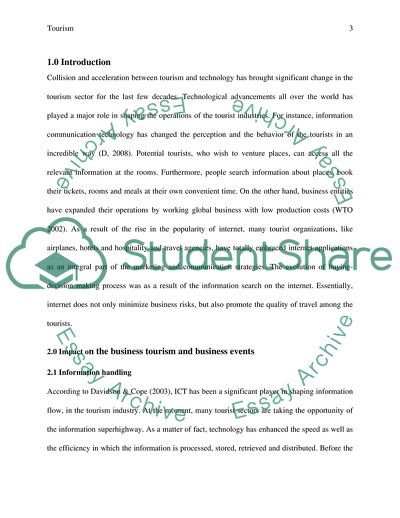Cite this document
(Impact of Information and Communications Technology on the Business Tourism Case Study Example | Topics and Well Written Essays - 2250 words, n.d.)
Impact of Information and Communications Technology on the Business Tourism Case Study Example | Topics and Well Written Essays - 2250 words. https://studentshare.org/tourism/1815716-the-impact-of-information-and-communications-technology-ict-on-the-business-tourism-and-business-events
Impact of Information and Communications Technology on the Business Tourism Case Study Example | Topics and Well Written Essays - 2250 words. https://studentshare.org/tourism/1815716-the-impact-of-information-and-communications-technology-ict-on-the-business-tourism-and-business-events
(Impact of Information and Communications Technology on the Business Tourism Case Study Example | Topics and Well Written Essays - 2250 Words)
Impact of Information and Communications Technology on the Business Tourism Case Study Example | Topics and Well Written Essays - 2250 Words. https://studentshare.org/tourism/1815716-the-impact-of-information-and-communications-technology-ict-on-the-business-tourism-and-business-events.
Impact of Information and Communications Technology on the Business Tourism Case Study Example | Topics and Well Written Essays - 2250 Words. https://studentshare.org/tourism/1815716-the-impact-of-information-and-communications-technology-ict-on-the-business-tourism-and-business-events.
“Impact of Information and Communications Technology on the Business Tourism Case Study Example | Topics and Well Written Essays - 2250 Words”. https://studentshare.org/tourism/1815716-the-impact-of-information-and-communications-technology-ict-on-the-business-tourism-and-business-events.


